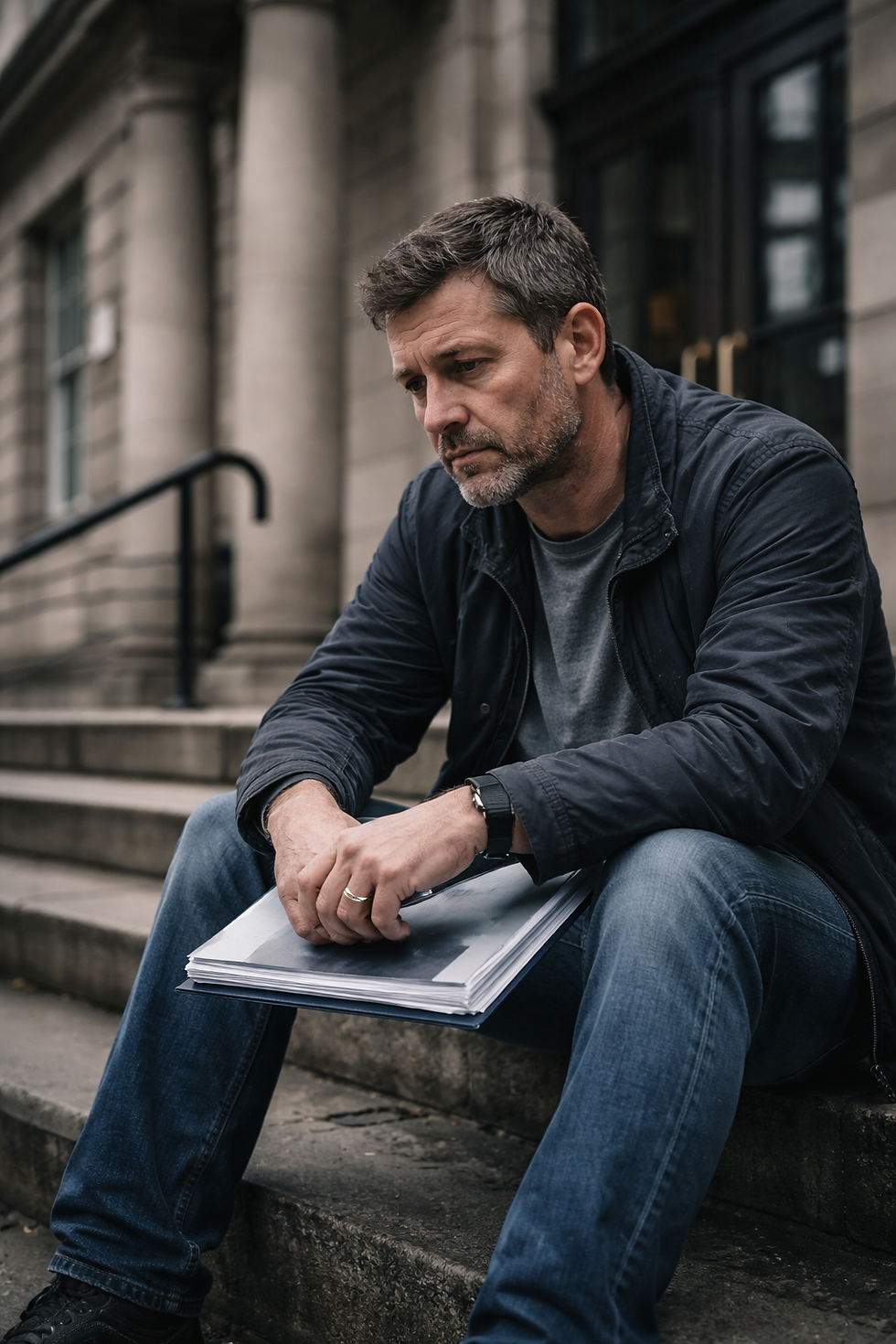Silent Victims: The Crisis of Vulnerable Men Facing Domestic Abuse
- Falsely Accused Network

- Apr 20, 2025
- 2 min read
By Michael Thompson
Founder, Falsely Accused Network
After years of working with victims of false accusations and domestic abuse, I've observed a deeply troubling pattern that receives scant attention in public discourse. Men who are autistic, have suffered brain injuries, or live with learning difficulties are disproportionately vulnerable to domestic abuse, yet remain among the most overlooked victims in our society.
Through my work with the Falsely Accused Network, I've encountered countless men whose neurological differences or cognitive challenges have made them particularly susceptible to exploitation and abuse. These men often lack the social awareness to recognise manipulative behaviour, struggle to articulate their experiences to authorities, or feel profound shame that prevents them seeking help.
Most concerning is how these vulnerable men face nearly insurmountable barriers when attempting to engage with support systems supposedly designed to protect all victims. The reality is starkly different when men – particularly those with cognitive or neurological differences – seek assistance from police or social services.

When a male victim approaches authorities, he frequently encounters disbelief, dismissal, or worse, suspicion that he may actually be the perpetrator. This institutional scepticism intensifies dramatically when the abuser is female. Our societal framework struggles to reconcile the notion of women as abusers, creating a blind spot that leaves vulnerable men exposed to continued harm.
One man I worked with, diagnosed with Asperger's syndrome, endured three years of psychological and physical abuse from his partner. When he finally approached the police, he was advised to "work on communication skills" rather than being offered protection. His inability to maintain consistent eye contact during interviews and difficulty articulating emotional experiences led authorities to dismiss his claims.
For men with traumatic brain injuries, the challenges compound further. Cognitive impairments affecting memory can result in inconsistent accounts when reporting abuse, which authorities often misinterpret as fabrication rather than a symptom of their condition.
The consequences of this systemic failure are devastating. Many vulnerable men retreat further into isolation, convinced that no help exists. Some endure decades of abuse, while others face false counter-accusations that their cognitive differences make difficult to disprove.
The Falsely Accused Network has documented numerous cases where female abusers weaponise their partner's disability against them, knowing they'll be more readily believed by authorities. This cruel exploitation of both institutional bias and cognitive vulnerability represents a particularly insidious form of abuse.
The path forward requires substantial reform. First, specialist training for police and social workers on recognising domestic abuse against neurologically diverse men is essential. Second, we need clearer protocols for evaluating abuse claims that account for communication differences in those with autism or learning difficulties. Finally, public awareness campaigns must acknowledge that vulnerability to domestic abuse transcends gender.
Until we confront these uncomfortable truths, thousands of vulnerable men will continue suffering in silence, betrayed not only by their abusers but by the very systems meant to protect them.
As we strive for a more equitable society, we must ensure protection extends to all victims – including those whose voices are hardest to hear.



Comments